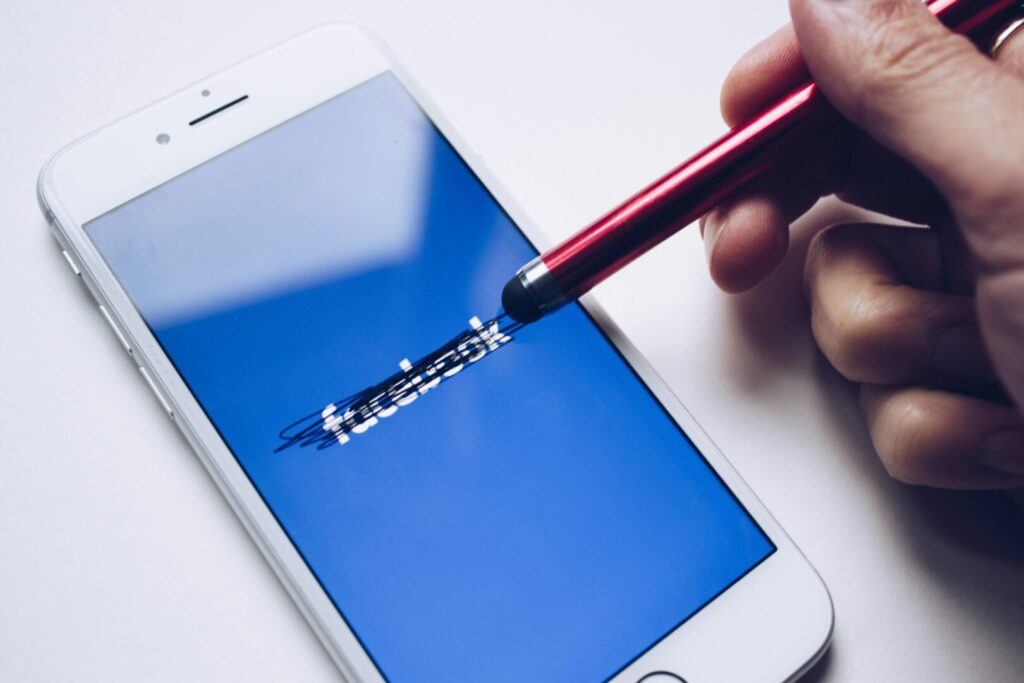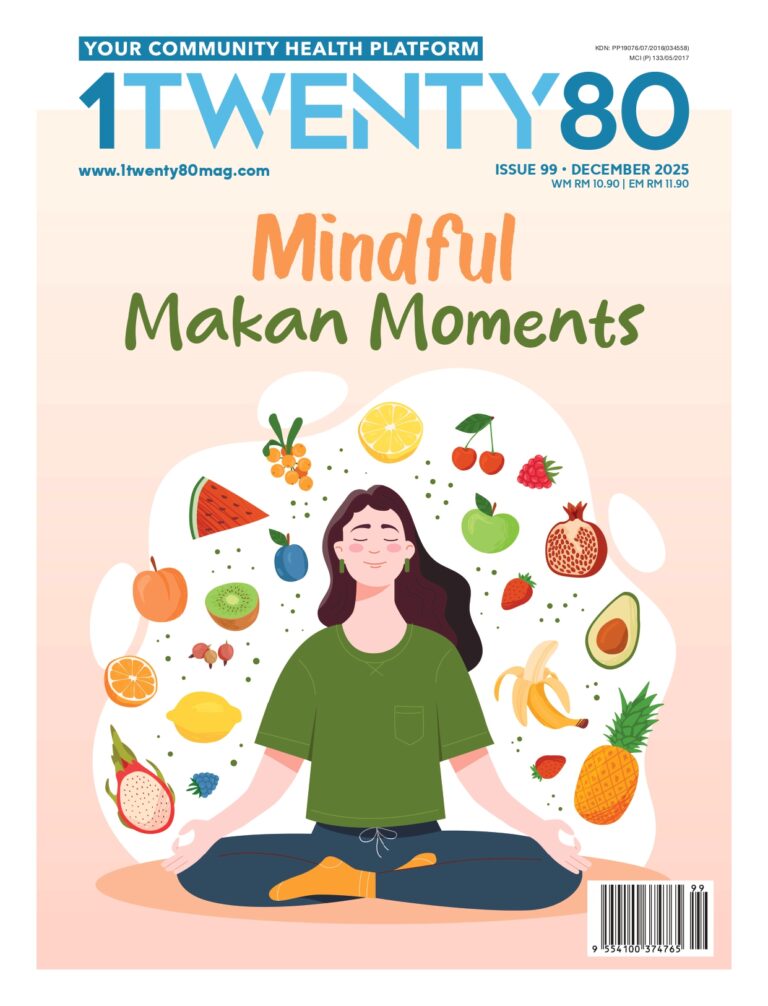A story of struggle, strength and triumph
In the labyrinth of Bipolar disorder, Vimal’s story unfolds as a testament to courage and resilience. In this exclusive interview, we delve into the world of Vimal, a remarkable individual who shares candidly about navigating the complexities of Bipolar 2 disorder.
1Twenty80: Can you please introduce yourself and share a bit about your neurodivergent identity?
Vimal: Hello, my name is Vimal, and I’m a 32-year-old Indian man currently residing in Kuala Lumpur, Malaysia. Professionally, I work as a Content Writer, but beyond that, I’m a passionate tech enthusiast with a keen interest in exploring the latest innovations in the field.
In terms of my neurodivergent identity, I’ve been officially diagnosed with Bipolar 2. Additionally, I’m a survivor of childhood sexual trauma, an experience that has undoubtedly shaped my perspective on life. While I may or may not have a personality disorder, I’ve also noticed traits indicative of Dissociative Identity Disorder (DID), or Split Personality, stemming from my adverse childhood experiences.
One of the key aspects of my neurodivergence is how I perceive the world around me. Unlike most ordinary individuals, I tend to view the world through the lens of my inner child – the seven-year-old within me who experienced the loss of innocence due to a violent sexual predator. This perspective colors my interactions and understanding of the world, shaping my unique outlook and approach to life.
In summary, I believe that my experiences and the way I navigate the world make me a neurodivergent individual, offering a distinct perspective that contributes to the diversity of human experiences.
1Twenty80: Can you share a quirky or unexpected talent that you believe stems from your neurodiversity?
Vimal: One of the quirky talents that I believe stems from my neurodiversity is my ability to effortlessly relate to people from all walks of life. Whether it’s striking up a conversation with a stranger or connecting with someone from a completely different background, I find that I have a natural inclination to empathize and understand others’ perspectives.
In addition to this, I’ve noticed that I possess a keen intuition and heightened perceptiveness, traits that I attribute to my neurodivergent identity. This intuitive sense allows me to pick up on subtle cues and nuances in social interactions, enabling me to navigate various situations with ease.
Perhaps unexpectedly, I’ve also found that humor plays a significant role in my interactions with others. Despite the challenges I’ve faced, I’ve developed a unique sense of humor that tends to resonate with people. I find joy in making others laugh and creating moments of levity, often finding humor in the mundane aspects of life.

Overall, I consider my ability to effortlessly connect with people and bring laughter into their lives as my quirky talent stemming from my neurodiversity. It’s a superpower that allows me to forge meaningful connections and leave a positive impact on those around me.
1Twenty80: If your neurodivergent traits were superhero abilities, which ones would you choose, and how do they empower you?
Vimal: If my neurodivergent traits were superhero abilities, I would choose teleportation, telekinesis, and mind control. These abilities would empower me in various ways, allowing me to navigate the world and interact with others in unique ways.
Teleportation would be my primary choice because of its versatility and efficiency. Much like the protagonist in the movie “Jumper,” I could instantaneously transport myself from one location to another, saving valuable time and effortlessly meeting people from different parts of the world. As someone with friends scattered across the globe, teleportation would enable me to have face-to-face conversations with them at my convenience, fostering deeper connections and meaningful interactions.
Telekinesis would also be a valuable ability, particularly in overcoming my occasional laziness when it comes to mundane tasks like household chores. With the power of telekinesis, I could effortlessly manipulate objects with my mind, making chores such as laundry or washing dishes a breeze. This would not only save time and energy but also allow me to focus on more meaningful pursuits without being bogged down by menial tasks.

Lastly, mind control would offer a unique form of empowerment, granting me the ability to influence and shape the thoughts and actions of those around me. While this power comes with great responsibility, it could be used to promote understanding, empathy, and cooperation among individuals, fostering harmony and unity in diverse social settings.
Overall, these superhero abilities derived from my neurodivergent traits would empower me to navigate life more efficiently, connect with others on a deeper level, and overcome everyday challenges with ease.
1Twenty80: What challenges have you faced due to your neurodivergent condition, and how have you overcome them?
Vimal: Navigating social settings can be particularly challenging for individuals with neurodivergent conditions like myself. One of the primary challenges I’ve faced is the struggle to fit in and be understood in group settings, such as Telegram or WhatsApp groups. Despite my best intentions, I often found myself misunderstood, which led to feelings of isolation and frustration.
To overcome this challenge, I made a conscious decision to prioritize my own self-care and self-betterment. I realized that I couldn’t control how others perceived me, but I could control how I reacted to those perceptions. By focusing on my own healing journey and developing healthy habits, I was able to cultivate a sense of inner peace and confidence that transcended external opinions.
Part of this journey involved creating boundaries and filtering out negativity from my personal life. I surrounded myself with a supportive circle of friends and colleagues who accepted me for who I am, neuro divergences and all. Additionally, I learned to embrace working independently and found fulfillment in having agency and freedom in my profession and career.
A significant source of strength throughout this journey has been my faith in Jesus Christ. By turning to Him, I’ve found solace and guidance in times of struggle. The timeless truths found in scripture, such as Hebrews 12:1-2 and Hebrews 13:8, remind me that I am not defined by the opinions of others but by my identity in Christ. Focusing on His unwavering love and presence gives me the confidence to navigate life’s challenges with grace and resilience.
In summary, while navigating social settings as a neurodivergent individual presents its challenges, I’ve found that by prioritizing self-care, cultivating supportive relationships, and leaning on my faith, I’ve been able to overcome obstacles and thrive on my journey towards personal growth and fulfillment.
1Twenty80: Are there specific strategies or accommodations that have been particularly helpful for you in navigating challenges?
Vimal: In navigating the challenges associated with my neurodivergent condition, I’ve found several strategies and accommodations to be particularly helpful in maintaining my well-being and managing stress.
One of the most effective strategies for me has been taking regular social media breaks. As someone passionate about advocacy and passionate about causes such as pro-life initiatives, Christian advocacy, and animal rescue and welfare, I’m actively engaged in sharing my views and promoting awareness. However, the downside of this engagement is the potential for receiving negative feedback or social media attacks. To mitigate the impact of these encounters, I’ve adopted a practice of logging off from social media platforms when necessary. This allows me to tune out the negativity and prioritize my mental health.

Additionally, I’ve recognized the detrimental effects of social media on my mental health as a neurodivergent individual. Instead of spending excessive time on social media, I prefer to allocate my energy towards activities that bring me fulfillment and joy. This includes engaging in meaningful work that aligns with my values and passions, such as advocacy efforts and sharing the gospel of Jesus Christ. By focusing on activities that matter to me, I’m able to maintain a sense of purpose and fulfillment in my daily life.
Furthermore, I’ve found solace in spending time in my own company and nurturing my introverted nature. Despite my advocacy work and involvement in various causes, I value my privacy and enjoy quiet moments of introspection. These moments allow me to recharge and reflect on my experiences, ultimately contributing to my overall well-being.
In summary, taking social media breaks, prioritizing meaningful activities, and embracing my introverted nature have been instrumental in helping me navigate the challenges associated with my neurodivergent condition. By implementing these strategies, I’m able to maintain a sense of balance and resilience in the face of adversity.
1Twenty80: Could you please share a workplace anecdote where your neurodivergent strengths shone like the brightest fireworks?
Vimal: During my tenure at a market research company, I had the opportunity to showcase my neurodivergent strengths in a particularly impactful way. The company had a corporate social responsibility (CSR) arm, and I found myself drawn to projects that aligned with my passion for social justice causes.
One such project involved addressing the needs of women, particularly mothers, who were struggling on the streets. I felt a deep connection to this cause and was determined to make a difference. With my innate ability to empathize and understand the perspectives of marginalized communities, I spearheaded a project aimed at providing support and resources to these vulnerable individuals.
Partnering with a local non-governmental organization (NGO) that focused on assisting the urban poor community in Kuala Lumpur, Malaysia, I led a team to develop and execute a comprehensive CSR initiative. From organizing outreach programs to coordinating donation drives, every aspect of the project was meticulously planned and executed with care and compassion.
Through my leadership and dedication, we were able to make a tangible impact on the lives of women and mothers in need. Seeing the positive outcomes of our efforts filled me with a sense of fulfillment and purpose, reinforcing my belief in the power of advocacy and social change.
This experience not only highlighted my neurodivergent strengths, such as my ability to empathize and lead with compassion, but it also underscored the importance of leveraging these strengths to create meaningful impact in the workplace and beyond.
1Twenty80: How can employers and colleagues create a more inclusive and supportive environment for neurodivergent individuals in the workplace?
Vimal: As someone with neurodivergence who has navigated the corporate world in Kuala Lumpur, Malaysia for nearly nine years, I understand firsthand the challenges faced by individuals like myself in traditional workplace environments. In my experience, many workplaces here are not adequately equipped to support neurodivergent individuals, leading me to choose independent work arrangements instead of traditional full-time employment.
In my view, there is indeed significant room for improvement in creating more inclusive and supportive workplace environments for neurodivergent individuals. One key aspect that could contribute to a more inclusive workplace is the need for greater empathy and understanding from employers and colleagues alike. Unfortunately, I’ve found that my inputs and experiences as a neurodivergent individual may not always be considered or valued by employers in this context.
However, there are steps that employers and colleagues can take to create a more supportive environment, even if systemic changes seem daunting. For example, providing education and awareness training on neurodiversity, offering flexible work arrangements, and implementing clear communication channels can all contribute to a more inclusive workplace culture.
While I may have chosen to work independently due to the lack of support in traditional workplace settings, I believe that advocating for change and fostering conversations around neurodiversity are important steps towards creating a more inclusive future for neurodivergent individuals in the workplace.

1Twenty80: What common misconceptions or stereotypes about neurodivergent individuals would you like to dispel?
Vimal: I would like to address several misconceptions and stereotypes surrounding neurodivergent individuals. Firstly, it’s important to dispel the notion that neurodivergent individuals are inherently “crazy” or unstable. Neurodivergence is simply a variation in neurological functioning and does not imply instability or irrationality.
Secondly, there is a misconception that neurodivergent individuals are prone to violence. This is unfounded and harmful. While some individuals may face challenges related to impulse control or emotional regulation, it’s crucial to recognize that violence is not a characteristic inherent to neurodivergence.
Additionally, there’s a stereotype that neurodivergent individuals are incapable or unreliable. This overlooks the diverse strengths and abilities within the neurodivergent community. Neurodivergent individuals can excel in various domains and contribute meaningfully to society.
Another misconception is the assumption that neurodivergent individuals are more likely to struggle with addiction or substance abuse. While some may face such challenges, it’s important not to generalize or stigmatize the entire neurodivergent population based on the experiences of a few.
Lastly, there’s a misconception that neurodivergence implies intellectual inferiority. This is entirely untrue. Neurodivergent individuals may have different ways of processing information, but they are not inherently less intelligent. Recognizing and valuing the diverse cognitive styles and abilities within the neurodivergent community is essential.
1Twenty80: Are there specific support networks, online communities, or resources that you would recommend to others?
Vimal: I would highly recommend exploring Thrive Well, a Community Mental Health social enterprise dedicated to expanding trauma-informed mental health services to individuals, communities, and organizations, particularly marginalized and high-needs communities, in a sustainable manner.
Thrive Well believes that mental health is a critical determinant of physical health, personal wellness, and overall quality of life. Through accessible direct mental health services for children, adults, and employees, as well as various impactful mental health programs in the community, Thrive Well is committed to developing healthy and inclusive communities in Malaysia.
Their mission aligns with the needs of neurodivergent individuals seeking support and understanding in their journey. By providing accessible mental health services and implementing community-focused programs, Thrive Well offers a supportive environment where individuals can feel understood, validated, and empowered on their mental health journey.
For those in Malaysia seeking resources and support in their neurodivergent journey, Thrive Well may serve as a valuable ally in promoting mental health and well-being in a compassionate and inclusive manner.
Vimal’s journey with Bipolar 2 disorder is a profound testament to the resilience that resides within every human spirit. Through his candid reflections and unwavering courage, he graciously invites us into the intricate labyrinth of his experiences, navigating the intricate web of neurodivergence with remarkable grace and unyielding determination.
As we walk alongside Vimal on his journey, we are gently reminded of the profound significance of empathy, understanding, and acceptance in shaping a world that embraces diversity. His story shines as a radiant beacon of hope, guiding us toward a future where neurodivergent voices are not just acknowledged but cherished and exalted.
In a world often clouded by misconceptions and stereotypes, Vimal’s narrative serves as a poignant reminder of the boundless strength that emerges from vulnerability and authenticity. May his journey ignite within us a fervent desire to challenge societal norms, advocate tirelessly for change, and cultivate environments where every individual, regardless of their neurodivergent identity, is enveloped in the warmth of dignity, respect, and boundless opportunity.
Together, let us forge a future where the richness of diversity is not just accepted but celebrated with open arms.
To keep up with Vimal’s journey, find him on Instagram @peoplelikeuscare.
Author’s Note:
This interview article is carefully crafted to foster empathy and provide a supportive platform for individuals within the neurodiverse community. It’s essential to emphasize that this article does not serve as a tool for self-diagnosis. If you suspect you may have a neurodiverse condition, seeking guidance from a professional is encouraged to ensure comprehensive understanding and support.











